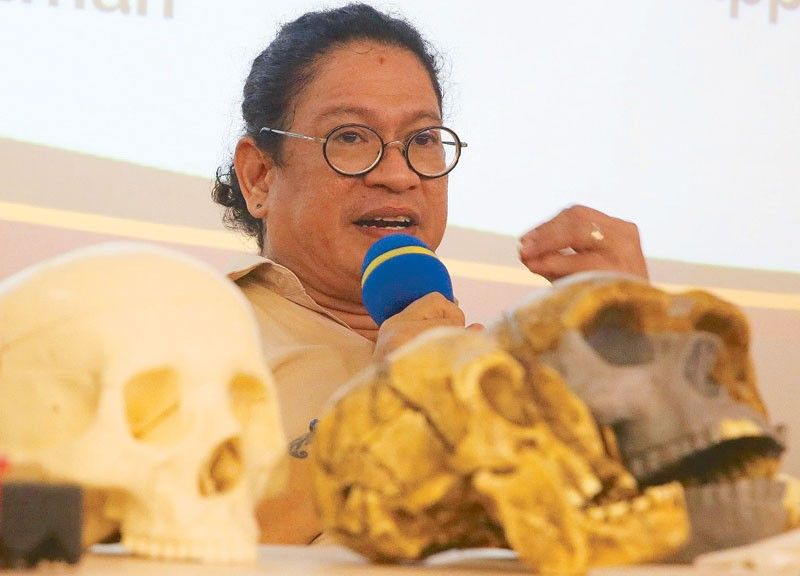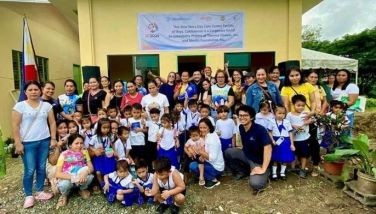Universities and the challenges of a globalized, digitized and unequal world

MANILA, Philippines — UNESCO’s International Bureau of Education defines competence as the developmental capacity to interactively mobilize and ethically use information, data, knowledge, skills, values, attitudes and technology to engage and act effectively across diverse 21st century contexts towards the attainment of individual, collective and global good.
The competences enumerated by global agencies include creativity, communication, critical thinking, problem solving, curiosity and metacognition; basic literacy, media, information, ?nancial and scienti?c literacies numeracy; initiative, self-direction, perseverance, responsibility, accountability and adaptability; digital, technology and information and communications technology skills; cross-cultural skills, leadership and global awareness; knowledge of disciplines and science, technology, engineering and mathematics or STEM mindset; and transdisciplinary capacity.
Worth noting is the threat of a digital skills gap in light of the projected future demand for data analytics that led an Asia Pacific Economic Community program involving data analysts and scientists from Philippine universities to identify competencies to be enhanced, including some of those cited above.
The above competencies cannot be honed, however, within the prevailing teacher-centered education paradigm that privileges theory over application.
Since the needed competences entail applying what is learned across fast-changing, unpredictable and often disruptive contexts, the globally-accepted learning outcomes/ competence-based paradigm demands a curricular structure that is characterized by flexibility, convergence of disciplines and industry partnership, among others.
It also involves delivery modes including experiential learning, blended learning,and flipped classrooms; and assessments such as authentic, real-time, performance-based or challenge-based assessments.
At the policy level, the Commission on Higher Education (CHED) has revised Policies, Standards and Guidelines (PSGs) to align with both a learning outcomes/ competence-based paradigm and learning outcomes corresponding to the Bachelor level of the Philippine Qualifications Framework.
Since the country’s experts who drafted the PSGs are themselves undergoing a paradigm shift, it may be necessary to review the PSGs after a shorter period of time than the usual number of years to hew them more closely to the spirit of a learning outcomes/ competency-based education.
Implementing the paradigm shift in university classrooms and learning spaces is a more daunting challenge. It requires a change in the mindset of faculty members who are accustomed to lectures and paper and pencil assessments. Focusing on learning and learners also demands more resources and faculty time. The uneven quality of Philippine higher education institutions further exacerbates this challenge.
Apart from preparing our people to cope with the profound reorganization of work and social life in this century, a special group of universities, i.e. research universities, are charged with knowledge production.
In the public mind, however, their relevance cannot be measured by publications/citations alone — which by virtue of its weight in world university rankings propelled the University of the Philippines to the top 100 Asian universities and the 4th ASEAN university in the Times Higher Education Rankings — but by the impact of their research on enhancing innovation systems and producing technologies.
With substantial support from the Department of Science and Technology, CHED, foreign and local funding agencies and even from universities themselves, researchers belonging to the Philippine network of research universities have produced significant findings, an example of which is the UP System-funded research collaboration with foreign scientists that led to the much-publicized discovery of a new human species, the Homo Luzonensis.
They also produced knowledge that translated to useful technologies. For instance, the technologies developed by UP academics include the Diwata-1 and -2 microsatellites that provide remote sensing data for disaster risk management and other uses, leptospirosis vaccines, fish size, population density and biomass estimation device, dengue detection kit, protein-enriched copra meal and a host of DOST-funded technologies; as well as village-base stations that enable communications in remote areas and other technologies supported by the CHED-PCARI project with the University of California Berkeley.
Technologies emanating from the research and innovation thrusts of our universities constitute a much longer list.
Universities within the country’s research university network have also begun providing innovation spaces and establishing innovation and technology transfer offices, albeit at a slower pace for some universities due to resource constraints.
But compared to counterpart ASEAN universities, the level of research, publications, innovations and technology development in the Philippines continues to lag behind.
Arguably, it will take the strategic, concerted and willful interventions of government, academe, industry and higher education stakeholders to turn this situation around.
Negotiating this turn is imperative to pivot the country to a higher level of economic and social development.
* * *
Maria Cynthia Rose Banzon Bautista, PhD is the vice president for academic affairs of the University of the Philippines System and currently sits in the ASEAN Qualifications Reference Framework Committee. - Maria Cynthia Rose Banzon Bautista
- Latest

























